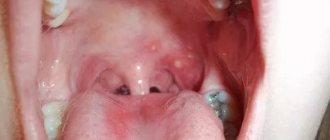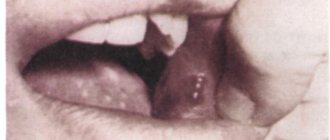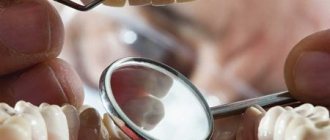Infectious processes and swelling
Often infection with various infections leads to negative changes on the skin of the penis.
Naturally, we are talking about those diseases that have the ability to be transmitted from person to person through sexual contact.
Among them:
- chlamydia is a common pathology caused by chlamydia
- herpes is a viral disease that leads not only to redness, but also to ulceration of the skin, followed by a rather long healing period
- indurative edema in syphilis is a variant of the body’s reaction to the penetration of Treponema pallidum into it
- candidiasis of the head and foreskin is an infectious disease of fungal origin, infection of which does not necessarily occur after sexual contact, since candida is an opportunistic microorganism that does not always provoke the development of the disease
It is important to understand that infectious processes in most cases are accompanied by additional symptoms.
If the patient can ignore them, it is with great difficulty.
When changes occur in the area of the glans penis, in most cases it is STIs that are diagnosed.
Since patients go to the doctor with them much more often.
Causes of pathology in adolescents
At the age of 13-18 years, rapid development of the genital organs occurs and the reproductive system is formed. This period is characterized by the possible occurrence of hormonal imbalances, as well as disruption of the normal functionality of certain systems and organs.
It is during puberty that there is a high probability of a discrepancy between the growth rate of skin tissue and the rapidly developing cavernous bodies in the penis.
As a result of the rapid onset of puberty, the frenulum of the penis becomes short in comparison with the size of the organ itself and is unable to painlessly perform its functions - to help the foreskin cover the glans.
If a teenager in this state begins to have sex (masturbation), there is a high probability that the skin fold will rupture or cracks will appear on it. Mini-damages of this kind must be treated with an antiseptic and consult a doctor.
Otherwise, not only mechanical damage, but also psycho-emotional discomfort may occur.
In the long term, this can lead to a decrease in confidence in one's sexual capabilities. And even cause impotence. During adolescence, not only puberty occurs, but also psychological foundations are formed. Therefore, the young person is especially vulnerable.
Other causes of penis swelling
Often patients are interested in the question of why the head swells after circumcision.
In this case, swelling is a normal temporary reaction of the body.
The body thus reacts to external invasion, responding to surgical intervention with an inflammatory process.
As doctors note, postoperative swelling subsides in patients quite quickly (on average, no more than 4 days are required).
If swelling not only lasts too long, but also severe pain or other changes in well-being appear after surgery, there is a high probability of infection.
In this case, you should see a doctor!
Another reason why the skin around the head may be affected is diabetes.
The fact is that with this endocrine pathology, the composition of urine changes.
It begins to negatively affect the skin around it due to the high glucose content.
It is also worth remembering that altered urine becomes an excellent breeding ground for the proliferation of various pathogenic microorganisms.
This only increases negative symptoms.
Swelling and possible additional symptoms
Often changes in the skin of the penis are not the only symptom that worries patients, forcing them to seek help from a doctor.
There is nothing surprising in this, because most diseases have additional symptoms.
True, as doctors note, the differences in symptoms and signs are so small that it is not possible to make a diagnosis based on complaints alone.
However, it is worth considering additional complaints that the patient may present at the appointment.
Among them:
- complaints of itching and burning sensations, which reduce the quality of life by an order of magnitude, sometimes even disrupting the night’s sleep of patients
- the appearance of problems with the process of urination (there may be complaints of soreness, sluggishness of the stream, the urge to go to the toilet without ultimately performing the action, etc.)
- the appearance of general symptoms of intoxication, such as fever, weakness, drowsiness, decreased performance, etc.
- the appearance of rashes on the skin, which may differ in shape, size, color and other parameters for different pathologies
- the appearance of discharge that is atypical in a normal state, which can be serous or purulent in nature (sometimes there are even streaks of blood, which is considered an alarming sign)
Naturally, all symptoms must be taken into account.
However, unfortunately, it is impossible to make a diagnosis based on them.
What to do if you have such symptoms?
For many men, the relevant question is when the frenulum on the head is torn - what to do? There is no need to panic initially. All actions must be extremely careful and safe. If bleeding and bruising are present, you need to treat the damaged surface with peroxide or other antiseptic preparations on hand (with the exception of iodine solution) to minimize the risk of infection. First, you need to pinch and press the frenulum against the penis with your fingers to stop the bleeding. The manipulation must be done carefully, since strong squeezing and pressing is fraught with negative consequences. You can keep your penis in this position for no more than 10 minutes. Next, you need to apply a bandage at the site of the tear, but do not wrap the penis completely. This can cause stagnation of blood in the vessels. After this, you can perform hygiene procedures, but we must not forget about the obligatory trip to the hospital.
In case of swelling, a compress of gauze soaked in cool boiled water will help relieve symptoms.
Local inflammations that provoke irritation of the dermis can be removed using a gauze bandage and water hygiene procedures.
But in any case, comprehensive treatment prescribed by a specialist will be required.
Which doctor should I go to for help with a swollen head?
Representatives of the stronger sex, when faced with a problem for the first time, tend to hide the presence of pathological symptoms and try to self-medicate.
It is a bad idea.
It is best to seek help from a competent doctor who can provide professional assistance.
However, not all patients know which doctor to contact if suspicious symptoms appear.
In fact, there are not as many options as you might think.
Representatives of the stronger sex should first of all visit a urologist.
It is urologists who deal with problems with urination and diseases of the male genitourinary system in general.
True, unlike a gynecologist, a urologist can also provide assistance to a woman if she needs it.
In addition to the urologist, it is worth visiting a venereologist.
The doctor deals with the diagnosis and treatment of infections that can be sexually transmitted.
A venereologist often combines his work with dermatology, which means he can also provide assistance with skin diseases.
In some cases, if an allergic reaction is suspected, the patient is recommended to visit an allergist-immunologist.
Consultation with this physician will also be needed when choosing treatment for infectious pathologies.
Since many patients require selection of drugs to correct their immune status.
Preventive actions
In order to prevent the problem from occurring, experts recommend taking a few simple preventive actions.
- Contacting a hospital for circumcision before phimosis manifests itself.
- If you experience discomfort during sexual intercourse, you should immediately contact a specialized doctor.
- Do not neglect the use of optimal positions for sexual contact with your partner, in which there will be minimal friction of the head against the vaginal walls.
- Before sex, spend enough time on foreplay so that your partner develops a sufficient amount of lubrication. If necessary, use special lubricants.
- Avoid sudden friction during sexual intercourse.
- It is important to show children over 3 years of age to a urologist in a timely manner.
- The rules of genital hygiene should not be neglected.
If you are still wondering whether the frenulum on the head should be torn, seek additional advice from a urologist. Although, taking into account the above information, we can say that such a measure will become a serious complication in the functioning of the reproductive organ.
Ways to diagnose swelling around the head
Men often ask questions about what tests to take if changes appear in the skin of the glans penis.
There is a whole range of studies that are designed to help the doctor determine the diagnosis and select the optimal therapy.
First of all, it is recommended to exclude sexually transmitted pathologies.
To do this, in most cases, the first step is to take a smear from the urethra.
The resulting material is examined in various ways to exclude the presence of various pathogenic agents in the body.
Also, if there are no signs of damage to the urethra, PCR can be performed from the surface of the skin.
In this case, preference is given to collecting material from those places where pathological changes are most visible.
Blood tests may also be done to diagnose infections and allergic reactions.
Different doctors use different methods to evaluate this biological material depending on the suspected pathology.
The choice of the optimal method is made based on the symptoms present in a particular patient, as well as his medical history.
Treatment
Treatment of inflammation of the frenulum of the foreskin is prescribed taking into account its causes. In most cases, surgery is not required; conservative treatment is sufficient. Therapy includes:
- antibiotics,
- anti-inflammatory drugs,
- immunomodulators,
- antimycotics.
If the cause of the disease is a short frenulum, surgery is indicated. Sometimes circumcision of the foreskin is performed at the same time. Frenumplasty is a minimally invasive procedure that usually does not require hospitalization.
Frenumplasty and laser circumcision in Moscow are performed by qualified specialists from our clinic. Make an appointment by phone.
Medicines that can help treat swelling
Often representatives of the stronger sex wonder what to anoint changes on the skin in order to quickly get rid of them.
No competent doctor will recommend ointments and creams without establishing the reason why negative changes have developed.
Once the cause has been determined, the following medications may be recommended:
- antibiotics – drugs intended to combat pathogenic microorganisms (both broad-spectrum and narrowly targeted ones are used, depending on the specific pathogen)
- antimycotics (for example, Fluconazole) - drugs designed to fight fungal infections, such as candidiasis
- antiviral drugs (Acyclovir) designed to cope with diseases caused by viruses (most often herpes)
- anti-inflammatory medications that help relieve negative symptoms and alleviate the overall severity of the disease
- antihistamine ointments and creams that eliminate the effect of the allergen, as well as relieve itching and burning, etc.
Ointments for treating the penis can only be selected by the attending physician!
It is not recommended to choose medications on your own, so as not to aggravate the situation.
Other treatments for swelling around the glans
Unfortunately, it is not always possible to cope with the disease using only local therapy methods.
In this case, other treatment methods come to the rescue.
If a patient has a severe infection, be it fungal, viral or bacterial, they may be prescribed oral medications.
As with ointments, the optimal medicine and its dose are selected individually depending on the doctor’s recommendations.
If treatment with systemic medications does not work or is delayed, surgery may be required.
Without it, for example, it is rarely possible to manage with phimosis of the genital organ.
In this case, the doctor cuts the foreskin, freeing the head.
Then it removes excess tissue, including those affected by inflammation.
Only the attending physician can decide what to do if the skin around the head is swollen.
Self-medication in this case is strictly not recommended.
Many representatives of the stronger sex try to use traditional therapy methods, but this is also not an option.
The fact is that traditional therapy can only be used as an aid to the main treatment.
But not as the only method.
Even when using traditional methods as auxiliary ones, medical consultation is necessary.
Non-surgical methods
Traditional medicine categorically denies the effectiveness of such techniques. However, if there are contraindications to surgical treatment, it is worth trying home methods for stretching the skin fold. There are several of them:
- The thumbs are carefully inserted into the prepuncial sac and begin to slightly stretch the skin. In this case, the feeling of discomfort should not develop into pain.
- Before the procedure, take a warm 15-minute shower or hot bath to soften the skin. Then the foreskin is retracted as much as possible and fixed for several minutes - this slightly stretches the frenulum and makes it more elastic.
Like any unconventional methods, such treatment will only work if used for a long time - more than 3 months minimum. The effectiveness will also depend on the individual characteristics of the organism. Such as age, physiology, regularity and correctness of execution.
Swelling around the head: possible complications
It is important to remember that treatment for swollen skin around the head of the penis should not be delayed.
After all, this condition can be caused by both harmless reasons and serious, even dangerous changes in the body.
Among all complications, phimosis is the most dangerous.
It can cause disturbances in the process of outflow of urine and sperm.
Phimosis is considered an emergency condition requiring surgical correction.
In addition to phimosis, infectious processes can cause complications.
Infections can progress, affecting, for example, the prostate, bladder, and kidneys.
The consequence will be diseases such as prostatitis, cystitis, urethritis.
Naturally, infectious pathologies with complications are much more difficult to treat than an acute form of the disease without complications.
Allergies lead to various scratches and damage to the skin.
The consequence may be an infectious process with nonspecific microflora, which will also negatively affect the patient’s condition.










